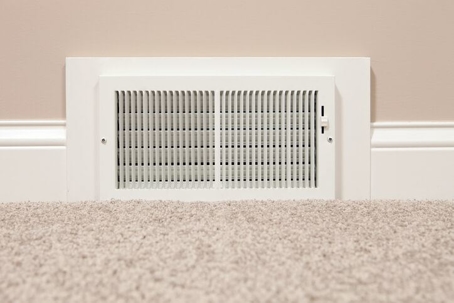You may have heard that closing your air vents can help you save money and your lower energy consumption. Although this sounds promising, closing your vents can actually do the opposite. What’s more, it can also harm your HVAC system.
Higher Utility Bills
One common misconception among homeowners is that you can lower your energy bills and have better control over your home’s temperature by closing vents in certain rooms. However, closing a vent in one room won’t necessarily redirect that air to a different area. Your HVAC system will continue to blow air toward the room with the closed vent regardless, wasting energy that you’re paying for all the while.
Airflow and Air Pressure Problems
Closing your air vents keeps the air from flowing correctly through your home and HVAC system. Ideally, the amount of air that your system pulls in should be the same as the amount of air that it blows out: this prevents air pressure issues.
When you close an air vent, this can cause air pressure to build up inside your air ducts, creating leaks in the ductwork and worsening any preexisting leaks. Leaky ductwork makes for an inefficient HVAC system. Inefficient HVAC systems have to work harder and longer to reach your desired temperature, which means that they go through premature wear and tear and cost you more money to operate.
Damage to HVAC Equipment
Aside from creating higher utility bills and excessive wear on your HVAC system, closing your air vents can cause damage to your HVAC equipment’s mechanical components.
If you own a system with an electronically commutated motor (ECM) blower, closing your air vents will cause it to work harder against the increased pressure in your air ducts. This can lead to a premature system breakdown.
If your system is equipped with a permanent split capacitor (PSC) blower, you’ll have a different problem: this type of blower will slow down against the extra pressure that closed vents create. It’s bad for the blower to slow down because that reduces the airflow your system needs to function correctly. In air conditioners, inadequate airflow can lead to a frozen evaporator coil (which can eventually lead to a broken compressor). In furnaces, low airflow can cause the heat exchanger to overheat and crack.
Bottom Line
To get better control of the temperature in your home, do not close your vents. Instead, invest in energy-smart options like thermal or heat-blocking curtains, weatherstripping, and improved attic insulation. If you still have trouble getting your home to reach an even temperature, talk to your trusted Dallas HVAC contractor about installing an HVAC zoning system to give you maximum control.
In need of an HVAC rescue in Dallas? Contact Rescue Air and Plumbing, 24/7: (972) 201-3253.

